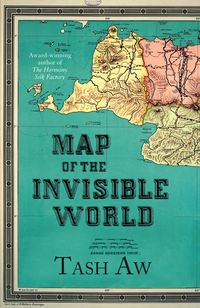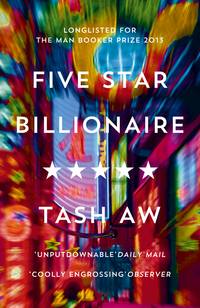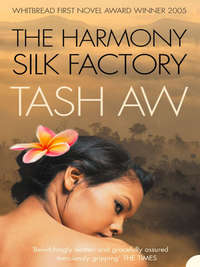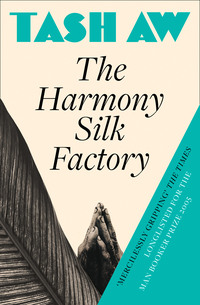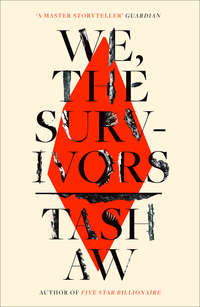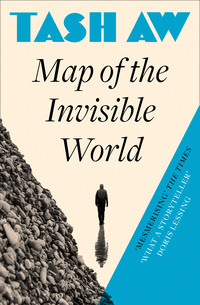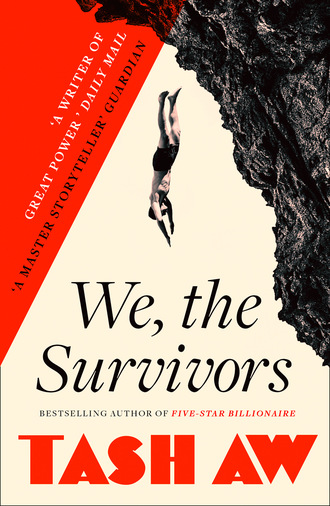
Полная версия
We, The Survivors
That’s why I say I’m lucky. I don’t work, yet I’m alive. My days are calm. I’d even say I was blessed.
[Long silence.]
Sometimes … [Hesitates; reaches for and picks up cup of tea but does not drink.] Sometimes, yes, of course I think of that night. How can I not? I think of the two men who were present, Keong and the Bangladeshi guy. I know what you’re expecting me to say: that I see their faces, and that I’m tortured by the sight of them – but that’s not the way it is. I don’t feel anything about either of them – not hate, not pity. Maybe I should have felt anger towards Keong; maybe things would have turned out differently if he hadn’t come back to see me. He had choices. He didn’t have to ask me to do all those things.
Now when I think about him, I don’t see the Keong of that night. I see the version of him that appeared in court three years later, when my case was being appealed. His white long-sleeved shirt, his neat hair, even the way he spoke to the judge, softly and respectfully – anyone would have thought he was a salesman for an IT company in Petaling Jaya. I didn’t recognise him at first, I thought it was someone else, that the prosecutors had brought the wrong guy to the courtroom. The lawyers asked him questions about himself, and he supplied the bare facts – he owned a business importing frozen dumplings from China, his income stream was steady, he owned a Toyota Camry and had a home loan from Hong Leong bank. He’d recently been on holiday to Australia and was saving up to send his daughter to boarding school there in seven or eight years’ time, when she was old enough to travel on her own. Right now she had just started at a private school in Cheras, close to where he lived, so he could spend a lot of time with her at home. The moment he finished work, he’d rush home to his wife and daughter and they’d spend the evening having dinner, doing the daughter’s homework together and watching a bit of TV. She was a studious girl – she really loved science!
He answered quietly, as if he didn’t want me to hear what he was saying. On the other side of the courtroom I had difficulty making out some of his words. Mortgage. Laptop. Playground. The man speaking seemed to be embarrassed by the way he lived. Why would someone feel shy about having a life like that? That was when I realised it was Keong – the same one I had known since my teenage years, and I knew why he appeared so awkward. He was ashamed because of my shame – or to be more precise, he was ashamed of being happy while my shame was on display to the world. We’d shared so much as children. People used to say, ‘No use giving Ah Hock any ice cream, he’ll just give half to that little bastard Keong.’ But time – that was something we couldn’t share. It could only favour one of us.
And I thought, Of course he’s changed. All those years in prison, when I went through phases of either sleeping all day and all night, or lying awake all day and all night – phases that lasted weeks and broke down my sense of time, my resistance to the idea that every day should be different – during that time, Keong was changing himself. Anyone could have become a new person in that period, anyone could have acquired a brand-new life. He’d been so proud of his hair, the long fringe that he’d dyed a shade of coppery orange when he was fifteen, and that he’d kept right up until that evening when we last saw each other. I used to joke with him. ‘Hey, big brother, going to become father, still keep that gangster hairstyle meh?’ He called it ‘blond’, thought it made him look like a Hong Kong pop star. He always used to do this [sweeps hand theatrically over forehead, throws back his head in slightly camp fashion]. Made me laugh. You’re a nobody, just like the rest of us – that’s what I used to say to him every time he tried to show off.
That hair was gone now, trimmed short and allowed to go back to its natural colour. I hadn’t seen him with black hair since we were teenagers. He’d put on weight, which made him look younger, not older, like an adolescent who’d once been chubby but was starting to shed all his puppy fat and turn into a handsome man. I could tell that he’d given up smoking, that he was eating better – his complexion was smoother, the deep crease between his eyebrows which he’d had since he was a child had disappeared. Ironed out by those three years.
At one point the lawyers started asking him questions about my character. Did he ever know me to be impulsive? Had he ever seen violent tendencies in me? Was I someone who felt sorry and regretted bad deeds? At first he answered clearly and simply, without hesitation, just like the serious businessman he’d become. It wasn’t a role he was performing, it was who he really was now. Both his English and his Malay had improved, and he used them carefully, considering every word before saying it. But as the questions continued, he began to feel at ease and started speaking more freely, sometimes using expressions you might consider rude. He even told a little story from our teenage years. One time hor, I steal biscuit from the store, I share with him but I steal so much we cannot finish, he say must return, must return, I say no way, poke your lung, but he lagi force me so next day we go give back biscuit. Your mother. Make me lose face! But he say how can steal, she also no money.
‘OK, OK, Mr Tan. I think that will do.’ When the lawyer said that I laughed. Even in his new life, Keong couldn’t resist talking too much. For a few seconds, when he was recounting that incident – which I couldn’t recall – I saw the years and the extra weight he’d acquired fall away. I saw the skinny kid with a sharp face and earrings again, the one I’d grown up with and had always thought would end up in jail. We even joked about it when he left KL to find work elsewhere. ‘Don’t worry about an address,’ I’d told him, ‘I’ll just come looking for you in prison.’
After the lawyer’s admonishment he fell silent once more – a husband, a proper father, someone you could trust to hold a family together. That’s the image of him that comes to me from time to time these days. A respectable man, beyond hatred.
It was only much later that I realised I’d only spent three years in jail. Three years – that’s nothing! Why did it feel so long when I was in my cell? And how did Keong change so quickly? That’s when I felt bitter. I’d never held a grudge against him, not even for coming back to Klang and bringing Evil into my life. When I talked about it to members of the church some years later they said, You must forgive him the way God forgives you. And I thought, There’s nothing for me to forgive; I don’t feel anything towards him. But when I saw him in the courtroom and thought of how quickly he’d changed, I felt angry. He had taken hold of time and mastered it, I had let myself be crushed by it. It was only three years, I told myself, only three years – you can make up that time and turn things round for yourself. But I knew I was no longer capable of changing my life. Evolution is a funny thing. For the longest time, you believe in the power of change – in your ability to mould your life through even the smallest acts. Even buying a four-digit lottery ticket feels loaded with optimism, as if those five bucks might turn into a twenty-thousand bonanza and transform your life. Then one day it disappears, that blind devotion to hope, and you know that even if you pray all day, nothing will happen to you. My anger was directed at myself, I didn’t blame Keong. Seeing him reminded me of the person I could no longer be.
As for the other man, his face remains a blank, even though it should be the one thing I remember from that night. In my defence, it was very dark when I first saw him. What’s more, he turned away from me before I picked up the piece of wood. I couldn’t see his face when I struck him.
October 6th
Towards the end of the trial my lawyer tried to explain to the jury the kind of childhood I had experienced. She was young and clever, she worked for free, she wanted to help me. I understood that my life was being used as an excuse for many things. I listened to her speak about me, and though the facts were true, I felt as if she was describing someone else, someone who had grown up close to me, maybe in a village a couple of miles up the coast. Another guy who shared my name, which she kept repeating. Lee Hock Lye. Lee Hock Lye. Always my full name. Sometimes she said, Lee Hock Lye, also known as Jayden Lee, which made the name sound fake, as if I’d made it up – which I had. But still, it was my name – had become my name. I had chosen it when I’d found proper work and things were going well, just before I got married. It sounded good, people liked it – they hadn’t heard anything like it before. It was a cool name that looked professional on the calling cards that I had printed when business started going well. Jayden – that was me, but each time she pronounced the name in front of the entire courtroom it felt as though she was referring to someone else, because she said it as two separate words. Jay, Den. As if she found it unnatural. Every time I heard it, I felt as though the name was being prised away from me, and that I never truly owned it. Also known as. I should never have taken that name, I was foolish to have chosen it.
The person she talked about was miserable, badly-educated, hopeless. Someone who had no choices in life. Anyone listening would have pitied him. A woman in the jury was nodding her head slowly, her face twisted in a frown. Even I nearly felt sorry for the person being described. But then I thought: Wait, this is wrong. I also thought: I was happy. I was normal. I knew my lawyer was trying to help me, but I wanted her to stop talking. I started humming a tune to block out the noise of her words. I closed my eyes and tried to imagine being back in the village as a child. I tried to remember what it was like to be myself again, but it was ridiculous. That life was gone. What a stupid thing to do, trying to recapture your childhood while you’re being tried for killing someone. Recalling my life wouldn’t make it any more real – the truth of it existed in the version being described by my lawyer. I laughed at my own stupidity. I laughed quite loudly, and couldn’t stop, so I had to put my face in my hands. The lawyer turned around to look at me. She stopped speaking in the middle of a sentence and stared at me – the kind of look you give someone when you think he might be having a heart attack but you’re not yet sure what’s happening. The judge said, ‘I don’t think the defendant’s life story is relevant. Please continue with your legal arguments.’ My lawyer tried to dispute this, but my laughing and the judge’s scolding made her lose her concentration; all the intelligence and conviction and vigour I had admired up to that point dissolved in that stuffy courtroom. It was very hot that day, the air-con wasn’t working, I had trouble breathing. She stumbled over her words a couple of times, and couldn’t hold her thoughts together. I was glad it was all going to end soon.
She got the details wrong. Everyone got the details wrong. Maybe you can set things straight once and for all. Is your phone recording all this? I was born in Bagan Sungai Yu, not in Kuala Selangor town as all the court documents said. The two places are separated by a sharp curve in the Selangor river, and that small distance – forty, fifty feet in places – sometimes felt like an ocean between two continents. These days, with the bridges and good tarmac roads, people think of them as just one place: Kuala Selangor. I get the papers and read articles about new seafood restaurants built on jetties over the water, I see pictures of day-trippers from KL enjoying Sunday lunch, and I think: That’s not Kuala Selangor, that’s my village. But that’s the way things go: the big swallow up the small, everything becomes part of something else. It’s just funny to think that when I was a child, even at primary school, we had to take the ferry over to town, or cycle miles to get around the bend in the river, and when we got to the other side, it felt so busy and important that I thought I was in Tokyo or New York. That map that you’re looking at on your phone, it can’t show you the real distance between our side of the river and town on the other.
My father was a fisherman, just like my grandfather before him. In fact, every man in the village was a fisherman. The country left us no choice – the river coiled around the village, blocking our route south towards the towns, forever nudging us towards the sea. On the other side were the jungle and the plantations, which offered prospects even worse than the sea. Back then it was Indians who harvested the palm oil, now it’s Bangladeshis and Indonesians – whoever was doing it, we only had to look at their lives to know that their fate was worse than the storms and tides and tangle of nets that we lived with every day.
All of us worked at the mercy of the elements – the storms, floods, snakes, worms that burrow into your feet. Nature is beautiful when you look at it from afar, or from a car that passes through it with the windows rolled up. When you have to work outdoors it doesn’t seem so beautiful. Yesterday I read an article on Facebook that said: We should all spend more time outside! I looked at the photos of people walking in parks, hugging, drinking water from small bottles, eating slices of watermelon. Lying down on the grass without a mat, without shielding their faces from the sun. Everyone was having fun, no one was sweating or getting heat exhaustion. There were all kinds of people in the photos. Asian, African, every colour under the sun – but they were all behaving like white people. I mean, who else actually enjoys going out into the wilderness apart from these crazy angmoh? You get a day off work, you want to go out into the jungle? Those happy Westerners, they don’t know what ‘outdoors’ is like around here.
I remember once, when I was thirteen, fourteen – old enough to have started feeling that if I didn’t escape the village I would go mad – I spent a whole day cycling as far as I could, in every direction I could think of. I went inland into the plantations in the shade of the palm-oil trees until the mud tracks got too soft for me to cycle. I looked ahead of me, thinking, How long would I have to cycle before I came out on the other side of the estate? I could only see the perfect rows of trees disappearing into the darkness, so I headed back to the coast, cycling along the dirt path that ran along the rocky shoreline, the red earth staining my toes. All the way to Sekinchan and beyond, that was all I could see: red earth, rocks and mud, the sea stretching back towards Indonesia, so flat and shallow, like a sheet of silver without end. No wind. No shade. The sun so hot on my head and arms that my skin felt stripped away with sandpaper. The light too sharp for my eyes – the same light that I’d known ever since I was a baby. I knew that all my days as an adult – every single one, to the end of my time on this earth – would be spent under that burning sun. In that moment, I suddenly got the feeling that all the things I’d ever known – my family, my home, the trees, grass, water, food, the bare earth, the huge, huge sea: everything – were strange and foreign, as if I’d never known them at all. They were mine, handed down to me at birth, the only heritage I’d ever know, and yet at that moment they didn’t seem to belong to me. This land that was supposed to be part of me, and I part of it – in that instant we felt like strangers. I didn’t want it. One day, it would kill me.
[Pause; long sigh.]
I like my life indoors now. If I had children I would make sure they never had to go outside, ever.
What made us different from the Indians who laboured in the plantations was that we worked for ourselves. If it rained we wouldn’t eat. If the catch was plentiful we could save some money and replace our worn-out shoes, buy a tarpaulin to stretch over the front yard to keep the rain out of the house – small things like that. The equation was simple for us. But they worked for the big corporations, the ones the government took over from the British. New owners, same rules. Times change but the workers’ lives never improve. They had bad pay, bad housing, no schools, had to work with poisonous chemicals all day, had no entertainment in the evenings other than to drink their home-made samsu that made them go blind and mad. But what else could they do? Run away to the city and live on the streets? At least back then they had papers. Now it’s all Bangla and Myanmar workers – I don’t think a single one of them has an ID card.
We seldom spoke about the Indians on the plantations, except to say how miserable their fate was. Poor black devils, dead but not dead – repeating these kinds of expressions made us feel that by comparison we were comfortable and easy. We never mixed with them – our lives were totally separate. We didn’t want anything to do with them, in case their misfortune rubbed off on us. All the time I was growing up, I shared the villagers’ sense of being scared of the plantation Indians because they might infect us with their poverty, and we really didn’t need any more of that in our lives. Maybe it was just another superstition that we Chinese specialise in – you know, like: Don’t look at a funeral procession or you might die too. Looking back now, I guess it was because they made us realise that we were not so different from them. So they just existed, a constant presence on the plantations over there, which is to say right next to us – a reminder of how bad things could get.
I guess you could say it was Geography’s fault that I was born into a family of fishermen – that we became who we were. But history played its part too. Like most of the people in the village, three of my grandparents arrived from Indonesia in the first years of the Second World War, when it wasn’t safe to be Chinese over there. They’d heard about the internment camps, the summary executions, young girls being raped – all the stuff I’m sure you’ve studied at college. Even I heard about that in school. They knew it might be the same story here, but they took their chances. What makes a person leave a country for another country where they could be persecuted for exactly the same thing? You get on a boat in Sumatra, cross the Melaka Straits, knowing that you could get rounded up and put in a prison camp just like you were before. Why did they do it? I’ll never know. Aiya, they made it through the war, we’re all OK now, why do you care? That was what my mother said when I asked her about my grandparents. Stuff that went on in the war – forget it. Old Chinese folk never talk about that, so don’t go asking.
For many years, my grandmother refused to register to vote. The address on her ID card was her aunt’s in Teluk Intan. She’d spent a few years there when she first got to the country, and thought of it as a sort of home. She was the youngest, barely fifteen when she arrived. I’m not sure how long exactly she spent there, but the moment she got to our village she didn’t move for the rest of her life. It’s not like the rest of us actually bothered to vote – we didn’t, or only occasionally. It would never make much difference to us – politicians change, our lives stay the same. But with my grandmother, it was more than just not caring. She actively wanted to be hidden from view. If they come for us, they won’t know where I live! I’ll have one, two, three more days to escape. That’s what she used to say. Not like the rest of you! They’ll know your address and when the time comes they’ll know where to find you. Crazy old woman. People used to laugh at her. Who’s going to come for us? No one cares about us or what we do! But she was convinced that one day there would be a government decree, a law that would be passed overnight, and everyone with a Chinese name would be rounded up and put in camps, just as they were during the war. Hey Po-po, just chill out! We have internet now! Facebook Twitter Insta Snapchat, can Skype with someone in Russia while listening to Super Junior on live stream, team-play video games with people that you never met in Harbin and Copenhagen. You actually believe that in this kind of world, we can just round up millions of people and put them in a prison camp, or kick them out of the country? You think you’ll wake up one day and hundreds of thousands of people are going to be walking across the border into Thailand with nothing but the shirts on their backs, and all the homes and villages and entire cities we’ve built, with skyscrapers and malls, are going to be abandoned, just like that? Keep up with the times, Po-po!
She wouldn’t listen. For the rest of her life, she was obsessed by keeping her address secret, thinking it would protect her when Chinese doomsday arrived. When she was very old – I’d long since moved out of the village but was back living in the area – she fell down one day while reaching up to pick a pomegranate from the small tree she’d planted outside her house. A scrawny plant that never grew well, no matter how much she looked after it. That was another one of her obsessions, that stupid plant; in the end, it nearly killed her. The small plastic stool she’d climbed up on to reach its branches was brittle and cracking, and couldn’t take her weight when she stepped on it. She fell, broke her hip and ended up in hospital. When I arrived I found there were many forms to fill in. Each time I did so, she insisted I wrote her false address. ‘What the hell is the use of doing that?’ I said. ‘If they need to do any follow-up tests they’ll go searching for you fifty miles from where you live.’
‘Good,’ she said. Maybe it was because she was so young when the war broke out, only fifteen, and only sixteen or seventeen when she had to get in a boat and cross the seas to Malaysia. She knew what could happen to girls of that age in times of war. I guess that’s why she wanted to remain in the shadows. To be invisible is to be safe. Kids nowadays, their whole lives are on the internet – every minute of their day broadcast to the universe. Thank God my Po-po never knew Facebook – she’d have been anxious and stressed all the time. Die lor, police see computer know where you are! She was the opposite – wanted her history, her entire self, to be scrubbed out from the world.
That was when I understood that for her, our village was a place of comfort. We were trapped in obscurity, hard to get in, hard to get out. If anything happened, she could just slip away into the sea. Again. It suited her just fine.
My grandparents were all originally from Fujian province. According to my calculations, the ones who came from Sumatra – they’d only been in Indonesia for ten years max before they had to move again. Imagine that – you come all the way from China, you leave behind war, famine, getting in and out of small boats drifting on the ocean for months, eventually land in some tiny town in Indonesia, find some way of earning a living, working the land or the sea. You think you own that tiny bit of scrubby jungle or marsh or wherever it is you’ve landed, you think you can start a family, start a new life. Then, just when your days and weeks start to feel normal, when your notion of time begins to stretch out into a year, two years, a future – when you look at the place you’re in and it no longer feels as if every tree, every blade of grass is out to hurt you, you have to move again. More war, more boats, more swamps.
Guess that’s why they never wanted to leave the village once they got there. For them, that was it. End of the road. Stop. Don’t look back. Don’t look ahead. Even if this new place turned out to be as bad as the one they’d left, they’d take their chances there. No going anywhere, ever again, not even to Klang for a movie. Their children were the same – all the people of my parents’ age seemed to be attached to that coastline of rocks and mangroves and driftwood, sheltered by inlets and swamps. They started to fish, firstly to feed themselves, then, after the war, to sell in the small markets down the coast. One generation handing on its work to the next – the only heirloom we had. The men out in the boats at sea, the women sewing the nets in the village, the children gutting the fish in rickety shacks perched on stilts over the muddy banks – a way of life that didn’t change for nearly half a century, until the first bridge was built across the rivermouth in the early 1980s.


